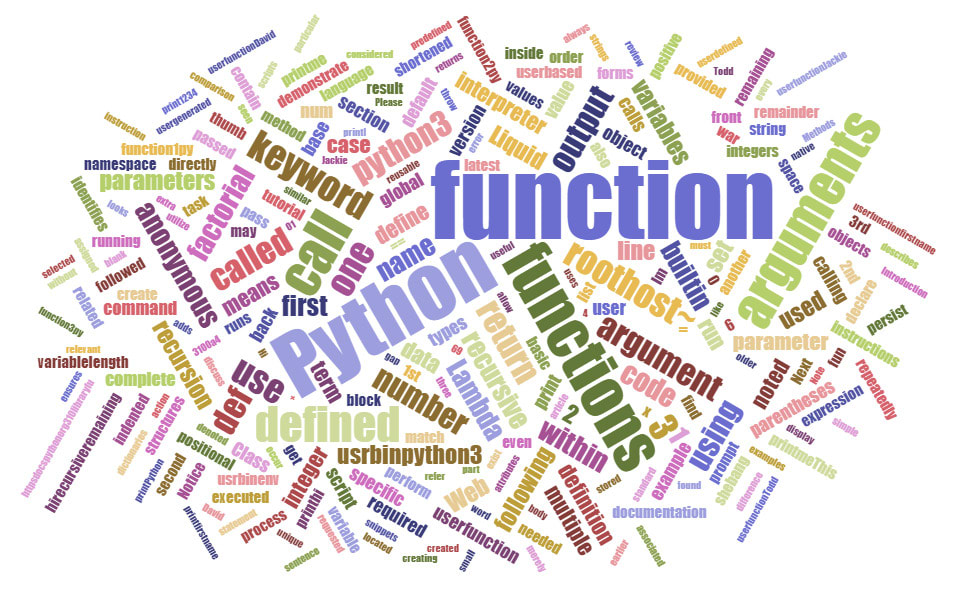Tag: Python Web Application
How to Install Pip on CentOS 7
Pip (also known as Pip3 — corresponding to Python 3) is a tool for installing and managing Python packages (the name "Pip" is a recursive anagram for "Pip Installs Packages"). It is considered by many to be essential for developing Python packages. If you're developing or distributing Python packages, Pip is a must-have. In this guide, you will be shown a few methods for installing Pip, as well as a few steps you can take to verify the installation was successful, giving you a smooth start to Python 3 package development. Let's review how to install Pip on CentOS 7.
Guide to For Loops in Python and Bash [Explained with Examples]
What is a For Loop?

A for loop in Python is utilized to make repeated use of a function or procedure, applying it each time to the result of the previous sequence. This repeating process is called iteration. The for loop checks each iteration until a condition is met. Typically these are used when we have to run a block of code duplicating it X number of times. Each time it iterates over a sequence, it re-executes the code.
How to Install and Configure Django on CentOS 8
Introduction
In this article, we will discuss what Django is, its purpose, and how to install and configure it on CentOS 8.
What Is a Python Function? A Tutorial

What is a Python Function?
In this tutorial, we discuss one of the most useful attributes of Python: the function. Python functions are considered “First Class” objects. A First Class object can be assigned to variables, stored in data structures, passed as arguments to other functions, or even return values from other functions. Other examples of First Class objects in Python are integers, strings, and dictionaries.
Which Installer is Better? Pip or Easy Install

One of the most significant advantages of Python is how easy it is to reuse existing code.
How to Install and Update Python to 3.9 in Ubuntu
In this article, we will explore the newest methods to install or update to the latest version of Python on our Ubuntu system.
How to Install and Configure Jupyter Notebook
What is Jupyter Notebook?
Jupyter Notebook is an extremely powerful open-source, web-based tool that facilitates the creation of documentation. There are many different avenues to provide technical documentation or demonstrations, but Jupyter Notebook makes it possible to embed visualizations and execute live code. It is useful to be able to utilize documentation to describe development concepts or planning, but providing working examples within documentation can be a more effective way of conveying information. This tutorial will cover how to install Jupyter Notebook on an Ubuntu 18.04 LTS server and connect to it remotely via an SSH tunnel.
How to Install PIP on Windows
Pip is one of the best tools to install and manage Python packages. Pip has earned its fame by the number of applications using this tool. Used for its capabilities in handling binary packages over the easily installed package manager, Pip enables 3rd party package installations. Though the newest versions of Python come with pip installed as a default, this tutorial will show how to install Pip, check its version, and show some basic commands for its use. Watch the video below or review the following article for additional instructions.
How to Install Python 3 on Ubuntu 18.04
Python is fast becoming one of the most popular programming languages worldwide. Its low entry barrier for new programmers and simple, elegant syntax makes it a fantastic language to start learning. Python is excellent for task automation, and thankfully most Linux distributions come with Python installed right out of the box. This is true of Ubuntu 18.04; however, the Python package distributed with Ubuntu 18.04 is version 3.6.8. This article will cover how to install a newer version of Python, specifically, the latest stable version 3.8.3.
How to Install Pyenv-virtualenv on Ubuntu 18.04

Pyenv is an outstanding tool for managing multiple Python installations. Pyenv-virtualenv is a pyenv plugin that facilitates the creation and management of Python virtual environments with pyenv. This is a compelling proposition, making it possible to manage multiple Python versions with pyenv and provide the means to control the Python environment in a more granular manner.
Our Sales and Support teams are available 24 hours by phone or e-mail to assist.

